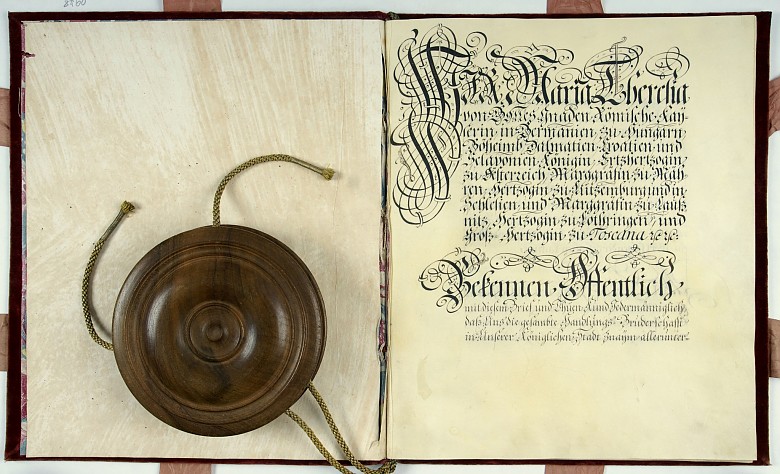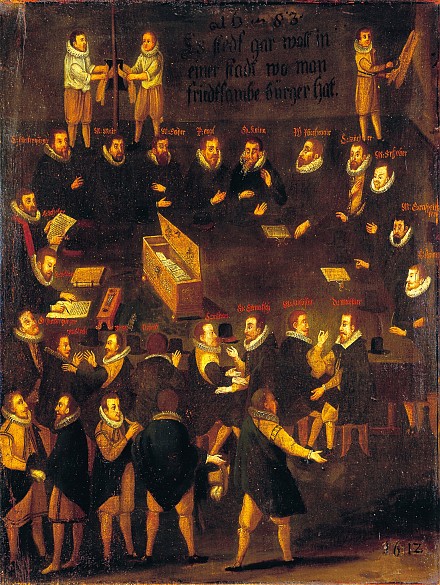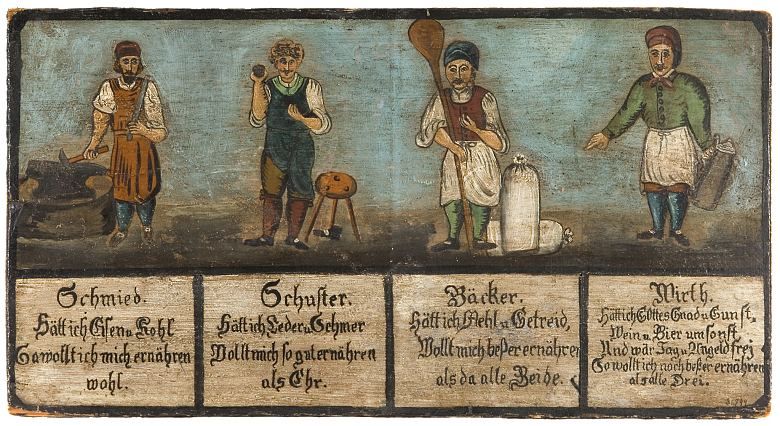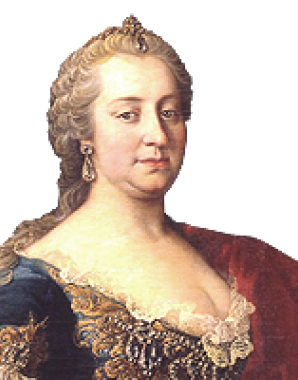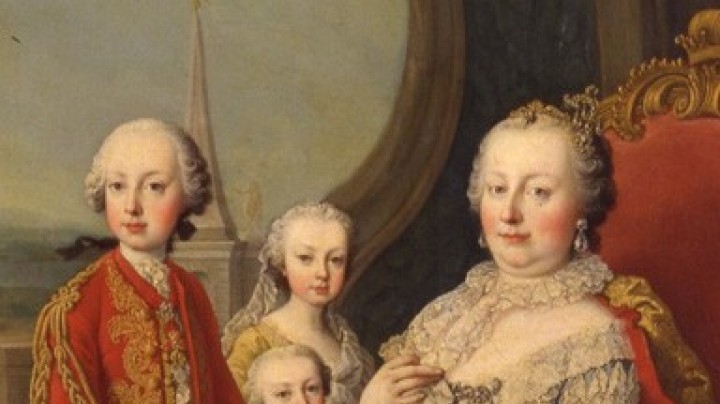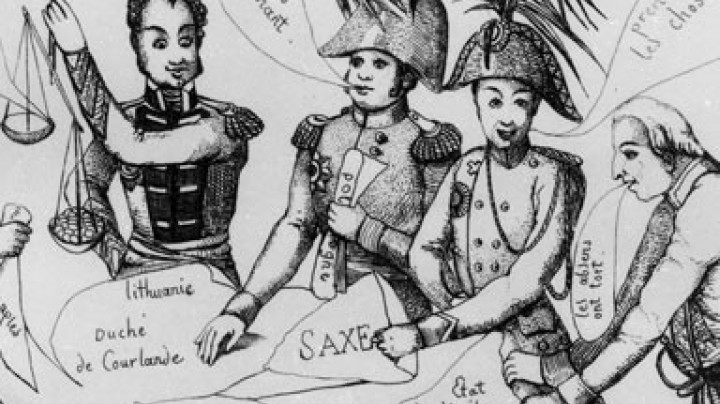The guilds as tax collectors – Eighteenth-century craft reforms
For Maria Theresa it was not only promoting the ‘big’ workshops that mattered. The ‘little’ craftsmen and guilds were also included in her economic stimulus programme.
Even in the early eighteenth century the rules of most guilds laid down how many masters were allowed to work in a district, how many journeymen and apprentices one master could take on and how many ‘work places’ he could provide in his workshop. The state came increasingly to regard these restrictions as a hindrance to growth and it was intended to get rid of them. In order to establish a unified system of guilds, individual guilds were combined. Under Maria Theresa it was planned to replace individual sets of rules with nationwide laws regulating crafts and craftsmen. To this end in 1753-4 a reform was enacted which laid down three categories: ‘commercial’, ‘police’ and ‘free’ trades. The ‘commercial’ trades – basically the textile and export sectors – were henceforth to be exempted from restrictions on production and placed under state control. The ‘police trades’ included those crafts whose products were intended for local markets. For these most of the old guild restrictions remained in place, but they were now to be enforced not by the guilds but by the local authorities.
These reforms also brought with them new tasks for the guilds: for example, after the tax reform of 1748-9 they had to calculate the taxable income of their members, collect the tax and hand it over to the competent authorities. In addition, from 1751 they were also responsible for the quality control of exports in their line of business. They also appointed inspector masters (Schaumeister), who were to check their members’ workshops and products every two to three weeks and report any shortcomings to the government.
Joseph II did not approve any more guild rules at all and wanted a complete reform of the laws governing trade and industry. As with so many of his innovations, his successors, Leopold II and Franz II (I), did not pursue this path.
